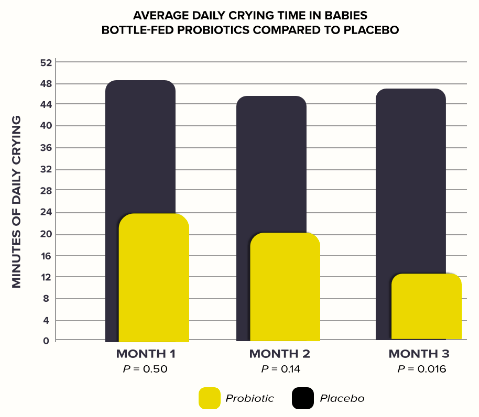Be the first to hear Zarbee's® news, learn about new products, and get access to FREE samples.
By signing up, I agree to Zarbee's® Privacy Policy

Probiotics
Probiotics are live bacteria and yeasts that are considered beneficial to the body’s overall health. Clinical research shows that regular probiotic use supports a healthy digestive system and helps with occasional gas and bloating.1* In addition, a growing body of evidence suggests that probiotics play an important role in supporting healthy immune function.2*
Properties and mechanism of action
While research into the molecular mechanisms of action of probiotics is ongoing, some of their functions include3:
- Colonizing intestinal microbial communities*
- Supporting balance of fecal enzymatic activities*
- Producing short-chain and branched-chain fatty acids*
- Producing cell adhesion and mucin*
- Supporting the immune system*
Scientific support
Three specific probiotic strains have been well studied for their digestive and immune benefits:
Bifidobacterium breve is a gram-positive bacterium which is one of the first colonizers of the infant gut. B. breve strains have been well studied in infants, demonstrating that:
- A 3-month treatment with B. breve strains in healthy newborns helped to reduce daily vomit frequency, decrease daily evacuation over time, and improve stool consistency4*
- Administration for 3 months of 2 B. breve strains (B632 and BR03) helped to restore the gut microbial balance5*
- When used daily for 3 months, B. breve significantly reduced crying time in babies due to gas or occasional stomach upset6*

Minutes of daily crying in the probiotic group compared with placebo during the first, second, and third month of treatment, respectively.6
Bacillus coagulans is a gram-positive, spore-forming bacterium with high survival tolerance to acid and bile conditions. It has been extensively studied in both babies and adults, demonstrating that B. coagulans:
- Increases nutrient absorption and availability, in cooperation with gut microbiota2*
- Supports key aspects of innate immune defense mechanisms7*
Bacillus subtilis is another gram-positive bacteria that can survive extreme conditions, which has been studied in children and adults for over 40 years. B. subtilis has been demonstrated to:
- Survive transit through stomach hydrochloric acid8*
- Support immune function and improve gut health9*

